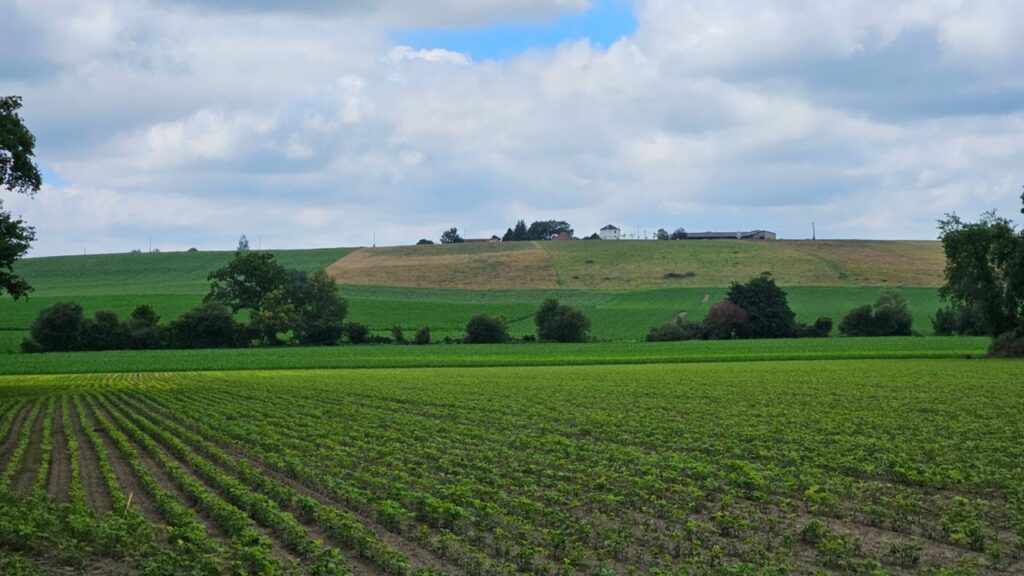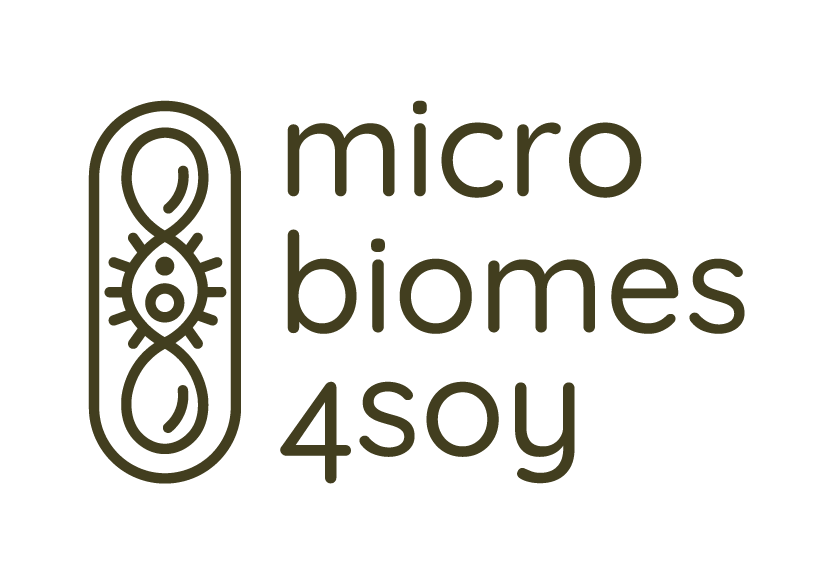In collaboration with European farmers, the MICROBIOMES4SOY project has successfully completed a large-scale soil sampling campaign across multiple countries, paving the way for research on how soil microbiomes may affect soya bean cultivation. This research aims to compare plant growth, performance, and resistance to environmental stressors, offering valuable insights into how microbiomes influence crop success.

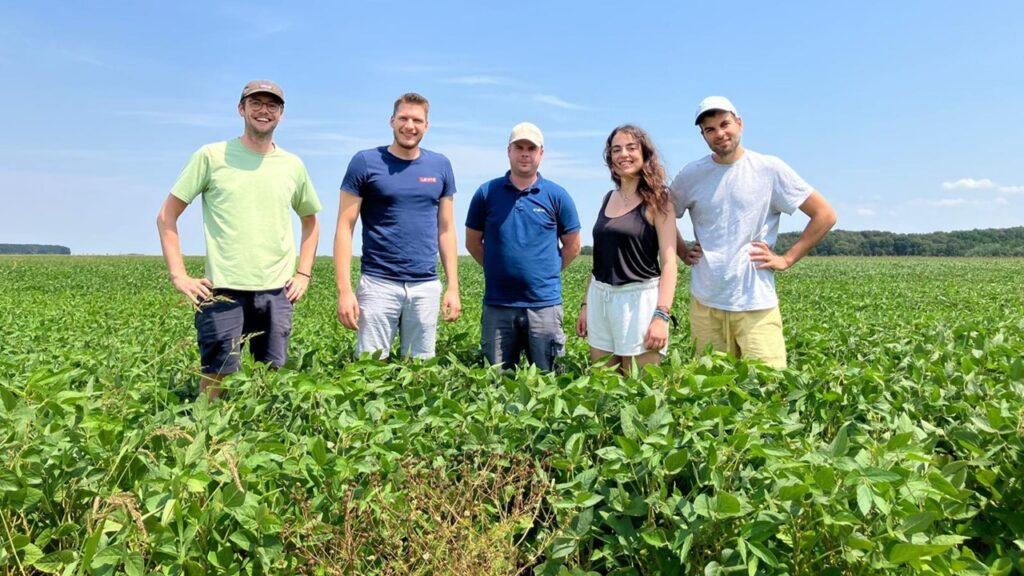
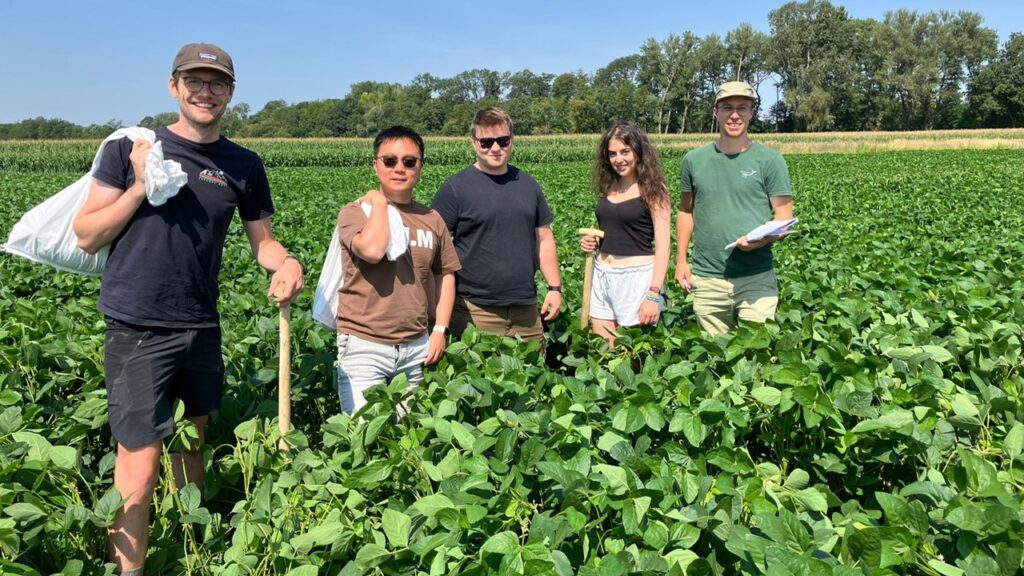
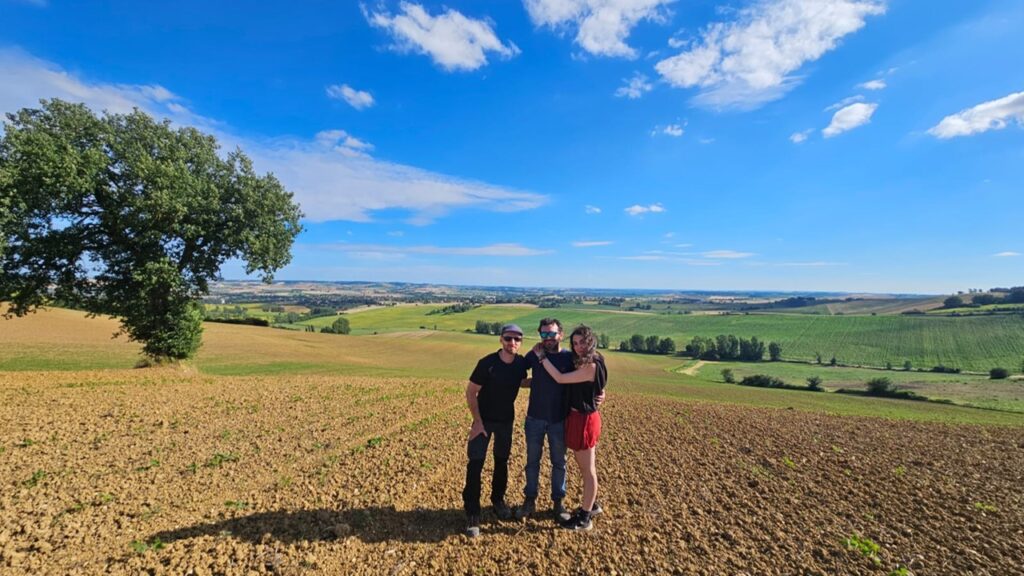

Shortly after the kick-off of MICROBIOMES4SOY project in January 2024, the soil sampling campaign was led by Maria Papadopoulou from Utrecht University, and supported by team members from Danone, Donau Soja, and the University of Bologna. Following a series of stakeholder meetings to explain the needs and requirements of the project, several soybean sites were identified across Europe for field trials.

In July 2024, the project collected a total of 100 soil samples, each weighing 30 kilograms. The selected sites spanned multiple countries, ensuring a wide representation of European soybean fields:
- 30 fields in southwestern France
- 30 fields in Austria
- 27 fields in Hungary
- 10 fields in northern Italy
- 3 fields in the Netherlands
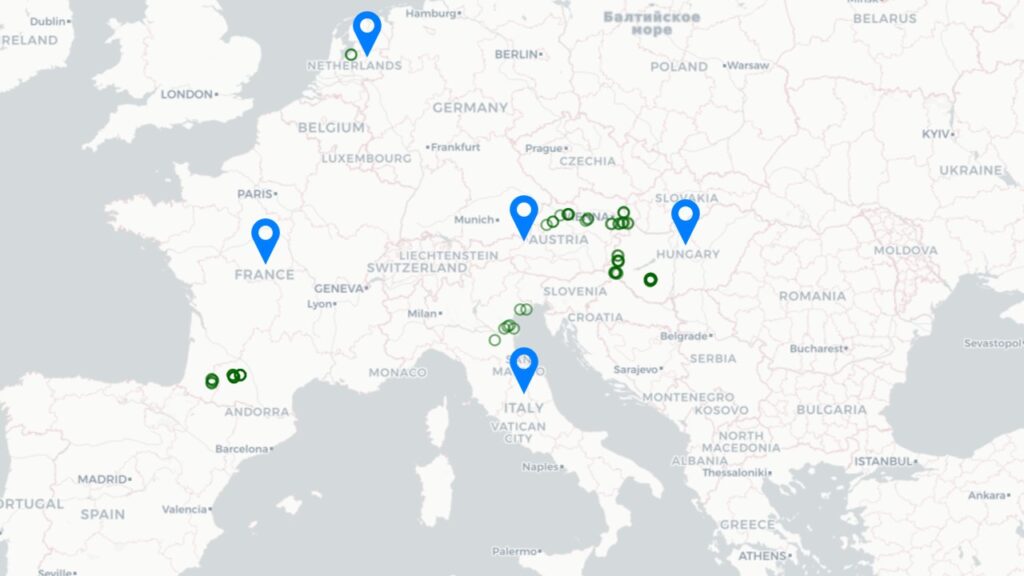
The comprehensive soil collection was gathered two months after the soybean seeds were planted. It is currently being stored in soil banks at Utrecht University, in carefully controlled conditions to preserve their microbiomes for future analysis. The next phase will take place at the Netherlands Plant Eco-phenotyping Centre (NPEC) in Utrecht, where the soil samples will undergo microbiome analysis and phenotyping. The team will grow soya bean plants under controlled conditions, with the only variable being the soil’s microbial composition.
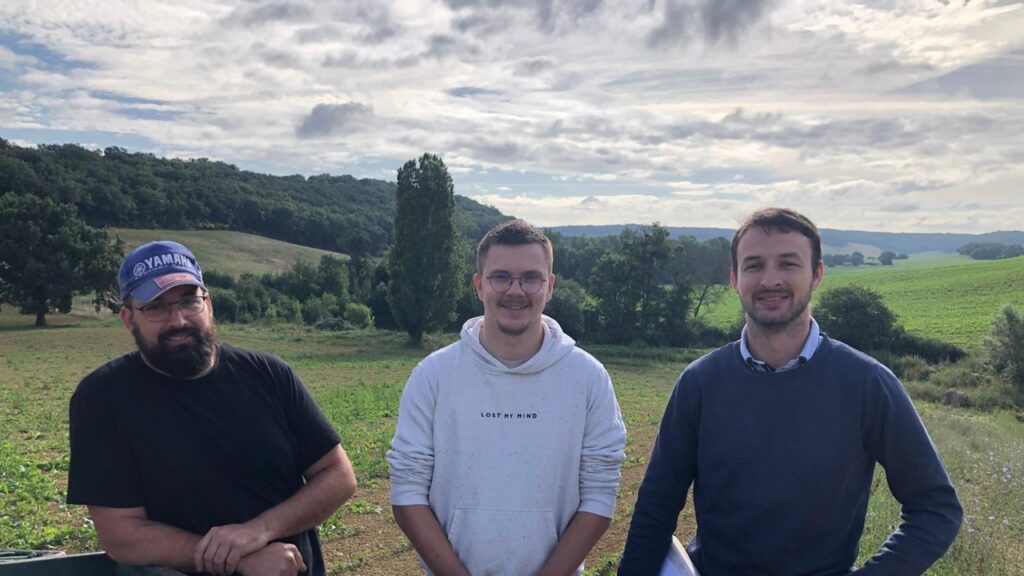


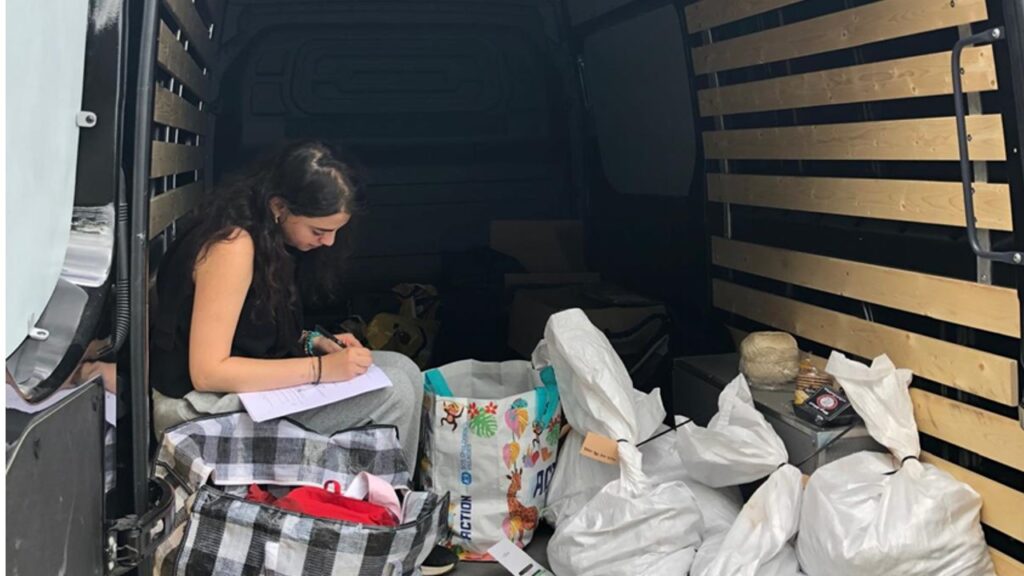
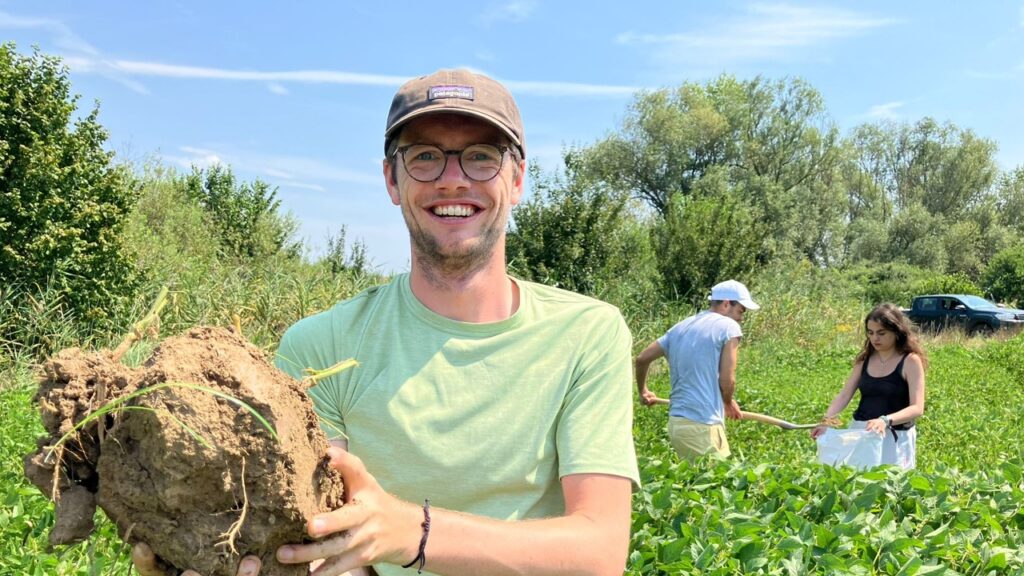

Farmers who participated in this campaign were highly cooperative, motivated by the promise of receiving detailed chemical analyses of their soils in return. Their enthusiastic support highlights the potential benefits of this research for the broader agricultural community. The findings are expected to provide critical knowledge on the relationship between soil microbiomes and crop performance, potentially informing future agricultural practices and improving soya bean yields across Europe.
